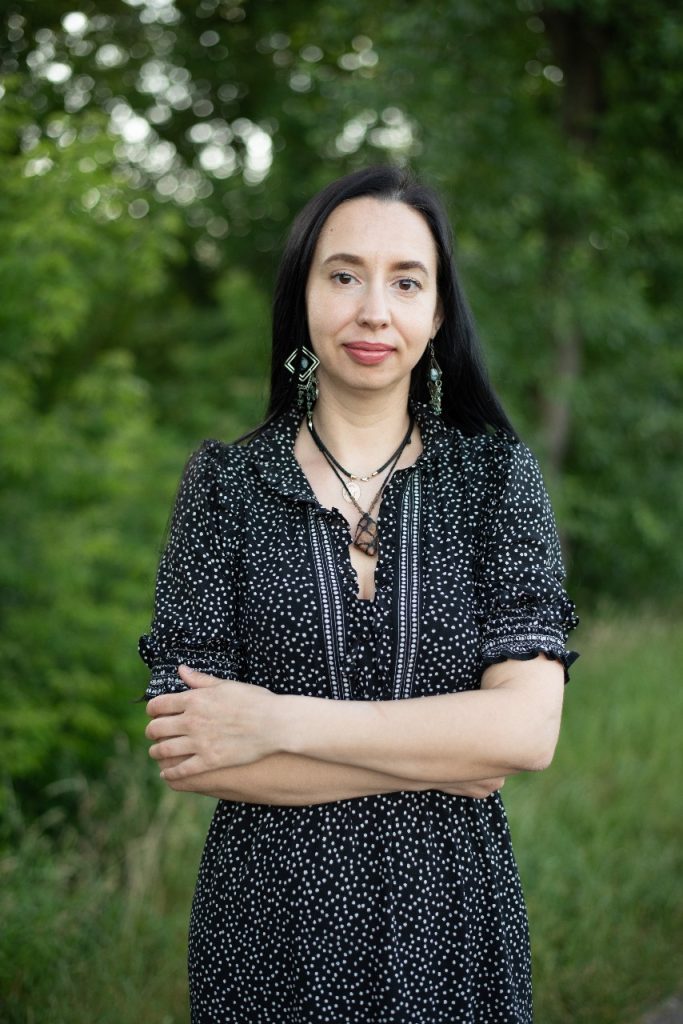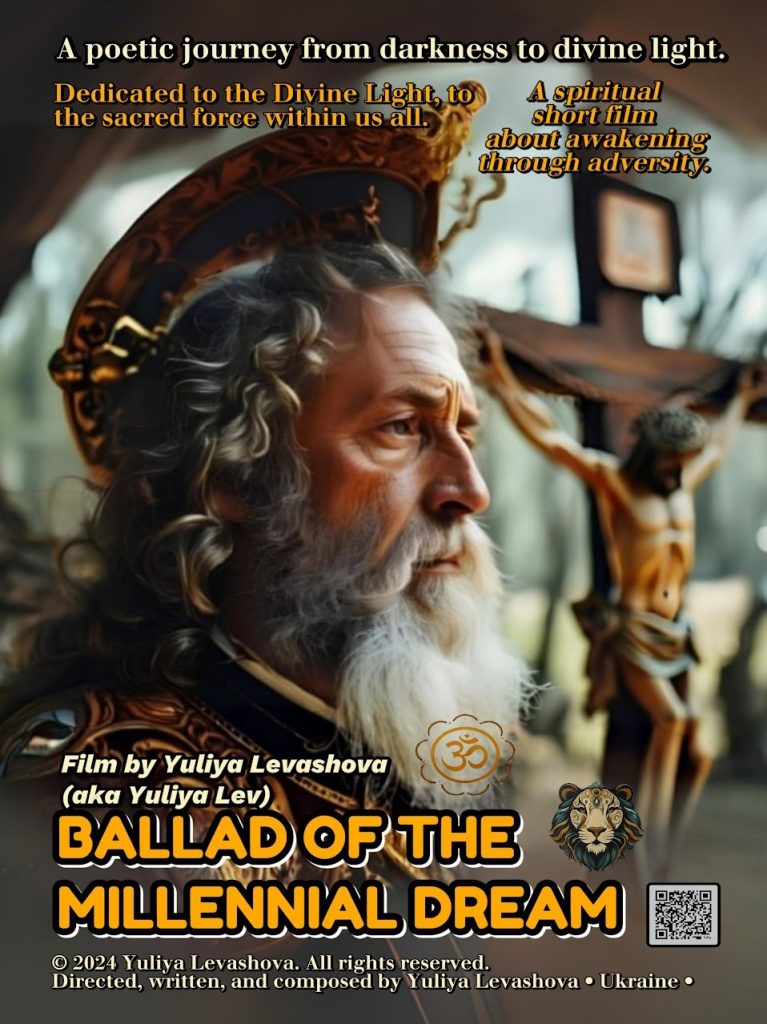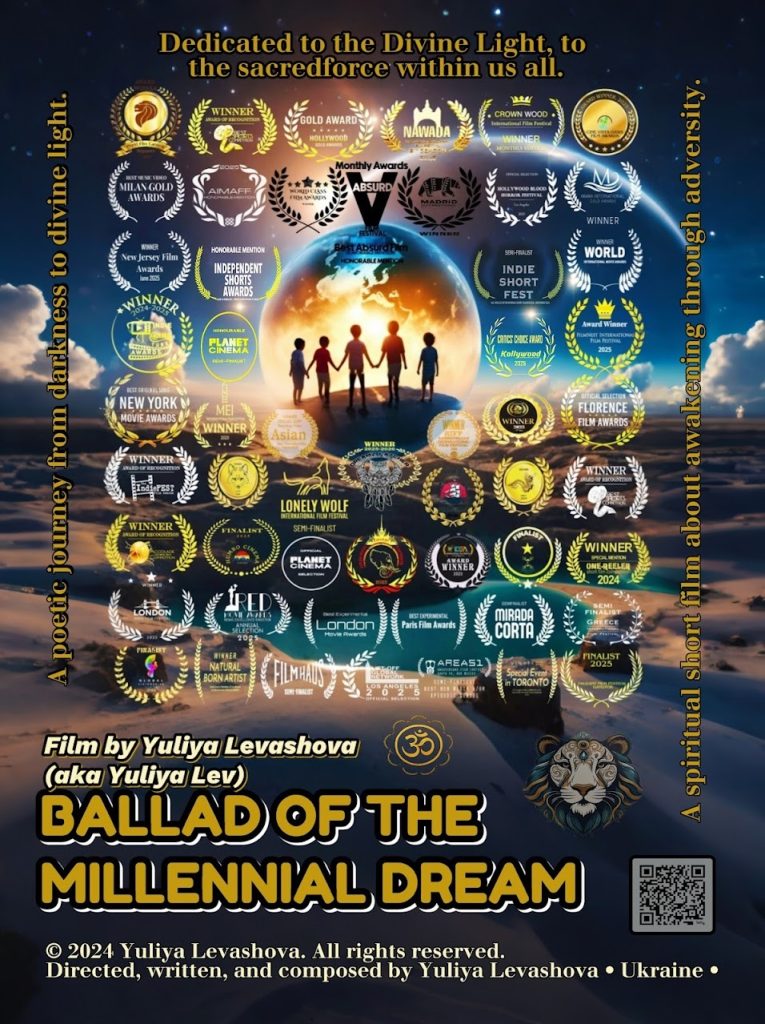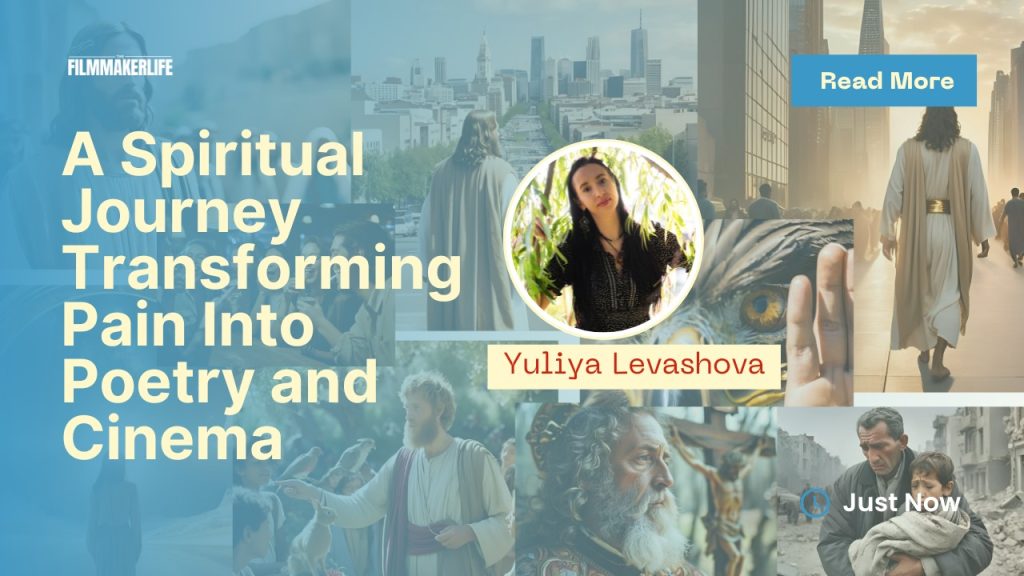A Voice Forged in Silence and Spirit
In the landscape of contemporary independent cinema, few voices resonate with the raw intensity and spiritual depth of Yuliya Levashova. Born in 1987 in Sokal, a small town in western Ukraine, Lev’s artistic journey is one that defies conventional boundaries. What began as a search for truth and connection has evolved into a cinematic path that merges poetry, music, spirituality, and visual storytelling into a singular, deeply personal form of expression.
Levashova’s life has never been about appearances. While her surroundings may have suggested an ordinary upbringing, she carried within her a profound longing for meaning, faith, and transcendence. Nearly two decades ago, she encountered a kindred soul whose quiet strength awakened in her a deeper spiritual exploration. This encounter marked the beginning of a creative journey that would later find its voice in poetry and ultimately bloom into cinema.

Yuliya Levashova
A Pilgrimage that Sparked Creation
In 2022, during the global pandemic, Levashova and her family undertook a pilgrimage to India, ascending the sacred mountain Arunachala with their young children. This moment, marked by encounters with silence, spirituality, and teachers such as Mauna Baba and Karl Renz, became a catalyst for transformation. From that silence arose her first spiritual poems, which soon grew into music and visuals shaped with the aid of artificial intelligence. These creations found a home on her YouTube channel and eventually gave birth to her most personal cinematic work to date: Ballad of the Millennial Dream.
Ballad of the Millennial Dream: A Prayer on Screen
At just fifteen minutes long, Ballad of the Millennial Dream transcends the limits of short film. For Levashova, it is not merely a work of art, but a prayer, a testimony, and a spiritual response to the struggles she continues to face in her hometown.
The film draws upon real-life experiences of systemic injustice: fabricated debts, frozen bank accounts, and the silencing of her legal rights. The judge in the film mirrors the very figure who in reality struck the gavel against her voice. Yet Lev’s cinematic gaze extends beyond a single courtroom. She portrays not only judges but also clergy, teachers, doctors, police officers, and officials—figures whose noble professions, she suggests, risk being distorted by a system that too often favors control over care.
In this respect, her work recalls the allegorical critique of films like Ray Nelson’s They Live or the Wachowskis’ The Matrix. However, Lev’s focus diverges from condemnation. Her central message is one of transformation: that even in the darkest of times, individuals are given the opportunity to discover the divine within and awaken to the light of unity.

Echoes of a Literary Legacy
Levashova’s creative voice does not emerge in isolation. It carries echoes of two giants of Ukrainian literature and resistance, Taras Shevchenko and Lesya Ukrainka. Like them, Lev uses art as testimony, a form of spiritual weaponry, and a defense of truth.
Shevchenko wrote of the dangers of blind obedience and the distortion of faith in the service of earthly power. Ukrainka, with equal courage, declared that in the kingdom of God there are no slaves and no masters, and urged her readers to embrace the freedom of spirit. Lev stands in continuity with these legacies, refusing to remain silent in the face of suppression, and affirming through her work that the temple of God is not an institution but the human heart itself.
Beyond Institutions: Toward the Inner Light
Levashova’s Ballad reflects a conviction that resonates across spiritual traditions: the path to God lies not in ritual or external authority. But in awakening the inner light that dwells in each human being. She acknowledges with respect the many priests, doctors, and teachers who seek sincerely to serve, but she is unafraid to expose the ways systems can impose distortions and limit authentic service.
In doing so, her work invites viewers not to despair, but to rediscover their own inner strength and connection to the divine. It is a call to turn darkness into light, to transform trials into spiritual alchemy, and to see art itself as a prayerful act of liberation.

Looking Ahead
Though Ballad of the Millennial Dream is a short film, it feels like the beginning of a larger body of work. Levashova herself sees it as a seed, one that may one day grow into a full-length feature. Yet even in its brevity, it achieves what every true work of art aspires to: it touches the soul.
For Levashova, filmmaking is not about recognition or accolades. It is about service. “Everything I create, I dedicate to God,” she affirms. “And if my films touch even one soul—then they have fulfilled their purpose.”
A Testament of Resilience and Faith
Yuliya Levashova embodies what it means to make cinema that matters. Her work is a reminder that art can be both deeply personal and profoundly universal, that cinema can be not only a medium for storytelling but also a vessel for prayer, resistance, and healing.
In a world where many voices are silenced, Lev’s courage to speak, to create, and to transform pain into poetry stands as a testament to the resilience of the human spirit. Her Ballad is not just her story—it is a call to remember that within every heart lies the true temple, waiting to be awakened.

Connect with Yuliya Levashova

Marcel Padriano is a film analyst and writer with a focus on marketing, distribution, and the independent film circuit. His work blends industry knowledge with a sharp understanding of global trends, making his articles a valuable resource for filmmakers, producers, and creatives navigating today’s evolving cinematic landscape.

